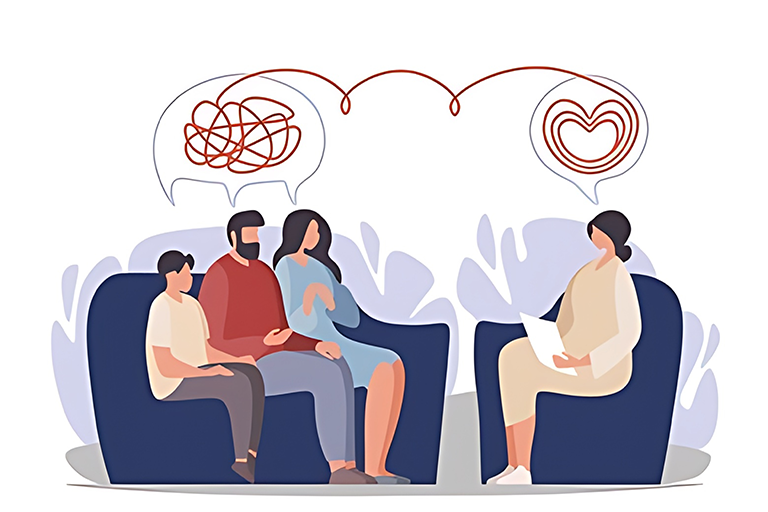Introduction
Being a confidant is a profound and honorable role in any relationship. A confidant is a trusted companion who provides a safe space for others to share their deepest thoughts, emotions, and experiences. This role goes beyond being a friend; it involves cultivating specific traits and skills that allow you to offer unwavering support, empathy, and confidentiality. In this article, we will explore the traits and skills you need to master to become a confidant and provide invaluable support to those who seek your trust.
The Importance of Being a Confidant
A confidant plays a crucial role in the lives of those they support. Here’s why being a confidant is significant:
- Emotional Support: A confidant offers a listening ear and emotional validation, providing comfort during challenging times. This support can help alleviate stress and emotional burdens.
- Reduced Isolation: Loneliness can be a profound and isolating experience. A confidant provides companionship and the reassurance that one is not alone in their struggles.
- Enhanced Mental Health: The presence of a confidant is associated with better mental health outcomes. Sharing thoughts and feelings can be therapeutic and contribute to emotional well-being.
- Improved Decision-Making: Confidants offer valuable insights, different perspectives, and guidance, which can aid in making informed decisions.
- Strengthened Relationships: Being a confidant often deepens your connection with the person who confides in you. This trust and vulnerability create strong, enduring bonds.

Traits of a Confidant
- Trustworthiness: Trust is the foundation of any confidant relationship. You must be reliable and consistent in maintaining confidentiality and demonstrating loyalty.
- Empathy: Empathy is the ability to understand and share in another person’s feelings. A confidant should be able to empathize with the emotions and experiences of the person confiding in them.
- Non-Judgmental Attitude: A confidant should withhold judgment, no matter how difficult the information shared may be. Avoid criticizing or blaming the person seeking support.
- Patience: Providing support as a confidant often involves listening patiently, even when the conversation is emotionally challenging or lengthy.
- Open-Mindedness: An open-minded attitude allows you to consider different perspectives and avoid imposing your beliefs or opinions on the person confiding in you.
- Communication Skills: Effective communication is crucial. As a confidant, you should be an active listener, ask open-ended questions, and express understanding through verbal and non-verbal cues.
- Respect for Boundaries: Respect the boundaries set by the person confiding in you. Do not push them to share more than they are comfortable with.
- Reliability: Be dependable and available when needed. A confidant should provide consistent support and be there in times of need.
Skills to Master as a Confidant
- Active Listening: Active listening involves fully engaging in a conversation, paying attention to the speaker, and providing feedback that shows you understand. This skill is fundamental to being an effective confidant.
- Empathetic Responses: Express empathy by acknowledging the person’s emotions and experiences. Use statements like “I can imagine how that must have felt” or “I’m here for you.”
- Effective Questioning: Ask open-ended questions to encourage the person to share more about their thoughts and feelings. For example, instead of asking, “Did that upset you?” you can ask, “How did that make you feel?”
- Confidentiality: The cornerstone of being a confidant is maintaining confidentiality. Ensure that you never share the information shared with you unless explicitly permitted by the person confiding in you.
- Boundaries: Respect the boundaries set by the person seeking your support. Avoid prying or pressuring them to share more than they are comfortable with.
- Non-Verbal Communication: Pay attention to your non-verbal cues, such as body language and facial expressions. These can convey empathy and understanding without words.
- Supportive Feedback: Offer feedback that supports and validates the person’s feelings and experiences. Avoid criticism or judgment.
- Maintaining Your Own Well-Being: Being a confidant can be emotionally taxing. It’s essential to prioritize self-care and seek support when needed to prevent burnout.

Challenges of Being a Confidant
While being a confidant is rewarding, it also comes with challenges. It’s important to be aware of these challenges and how to address them:
- Emotional Drain: Listening to others’ emotional struggles can be emotionally draining. Practice self-care to replenish your emotional reserves.
- Maintaining Boundaries: Striking the right balance between being empathetic and maintaining boundaries can be challenging. It’s essential to respect the other person’s limits while offering support.
- Impact on Your Emotions: Hearing about others’ difficulties may affect your own emotions. Ensure you have a support system in place to discuss your feelings if needed.
- Confidentiality Concerns: Safeguarding confidentiality is crucial. Be mindful not to unintentionally reveal information shared with you.
- Balancing Multiple Roles: If you are a confidant to multiple people, it can be challenging to balance your own needs, as well as those of the individuals seeking your support. Prioritize self-care and set boundaries.
Conclusion
Being a confidant is a role that requires specific traits and skills, but it is also a deeply fulfilling and compassionate way to support others. When you master the art of being a confidant, you provide a safe space for people to share their thoughts, feelings, and experiences, contributing to their emotional well-being and strengthening your connections.
Remember that being a confidant is not just about offering support but also about self-care and maintaining healthy boundaries. It’s essential to prioritize your well-being while providing unwavering support to those who trust you.
Ultimately, the role of a confidant is a testament to the power of empathy, trust, and understanding in human relationships. By embodying these qualities and continually refining your skills, you can make a profound difference in the lives of those who seek your trust and support.
Learn more: Mental Health Awareness
& Know about Your Confidant
Shruti Dua, Mental Health Blogger, YOUR Confidant





